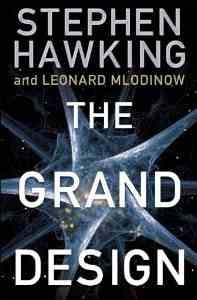by Luke MuehlhauserBecause there is a law such as gravity, the universe can and will create itself from nothing. that means power in universe effects on changes in itself it always exists changing its creation.
But this claim is only discussed in two chapters. Nor is it a new claim. Hawking’s atheism, and his (not so rare) belief that recent physics shows the universe can create itself from “nothing,” have been known for over a decade.
Moreover, the book does not even argue that the universe created itself from nothing, as nothing is usually conceived. Instead, Hawking argues that the universe will create itself from the pre-existing vacuum energy of “empty space,” which, is not really empty. Some physicists might idiosyncratically call that “nothing,” but philosophers and ordinary people certainly would not. Moreover, on Hawking’s model, this quantum vacuum energy is only known to exist after time 0 (the “beginning” of the universe). So if you’re looking for an explanation of how the universe could create itself from nothing, you won’t find even an attempt at the answer in Hawking’s book.
Another much quoted sentence from the book is:
Philosophy is dead.
One will thus be surprised to read the book and discover that it is about 40% philosophy. Hawking summarizes the history of philosophical thought about mind and epistemology. He discusses positions in philosophy of science such as realism and anti-realism, and spends several chapters laying out a new-ish philosophical position on the nature of science called “model-dependent realism.”
Eventually, this comes to a discussion of M theory, which is touted as the best candidate for a “theory of everything,” and as a theory which says the universe can create itself from the quantum soup.
But most physicists describe this section as far too bold. M Theory is barely even testable yet, let alone confirmed above and beyond its competitors.
Thus, the book doesn’t provide a convincing defense of its central theory (M Theory), nor does it even discuss how the universe could create itself from literally nothing.
Instead, Hawking’s book is another enjoyable romp through modern physics, and one to be read as some people’s interpretation of very fuzzy and inadequate data, rather than as “a brilliant physicist with an answer.” For my money, the best section is the one on Conway’s Game of Life, which is superb.
In this way, my reaction to The Grand Design was the same as my reaction to Sam Harris’ The Moral Landscape. If you expect the book to make the argument it was advertised as making, you will be disappointed. But it’s still an enjoyable dive into some of the latest theories and arguments in its subject.
Hi! I am a robot. I just upvoted you! I found similar content that readers might be interested in:
http://commonsenseatheism.com/?p=12325